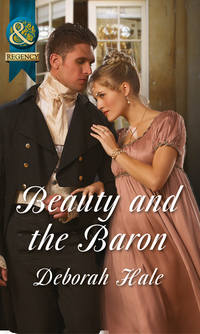
Полная версия
The Bride Ship
“It is.” She offered him her hand to seal their bargain.
As he wrapped his fingers around hers, Sir Robert felt a bewildering compulsion to raise them to his lips. Stifling the foolish inclination, he took a firm hold and shook her hand instead. “I shall await you at Government House.”
Before Mrs. Finch could reply, her friend spoke up. “I will fetch her there in my carriage, Your Excellency.”
Was the woman implying some reproach that he’d made Mrs. Finch walk the trifling distance from the wharf to his residence? Clearly these ladies were determined to put him in the wrong, whatever he did.
He gritted his teeth. “That would be most obliging of you, Mrs. Carmont. Now if you will excuse me.”
Sir Robert turned to the colonel, who had been watching the whole exchange with an amused grin that vexed him no end. “Will you accompany me, Carmont, or do you reckon the ladies require an armed escort as far as Hollis Street?”
His friend chuckled. “Any fool daft enough to molest these two deserves the trouncing he’d get. You, on the other hand, might require protection from the bachelors of Nova Scotia when they hear you intend to send all these lovely ladies packing to some other fortunate colony.”
“Et tu, Carmont?” Sir Robert growled.
He knew the futility of trying to wage a battle without a single ally. But it galled him to surrender without a fight. He vowed to give his pretty, conniving adversary a fight she would not soon forget!
What had made her accept his offer? Jocelyn could not wrest her attention away from the governor and Colonel Carmont as they disembarked and strode from the wharf. She had not played chess in years, while he looked like just the sort of cool, calculating fellow who would excel at the game.
But she sensed this was the only chance the governor would give her. For the sake of her charges, she must seize it—no matter how great a disadvantage she would suffer. Besides, the governor had roused her antagonism such that she could not resist his challenge. She half wished she could confront him on a more violent field of honor—with pistols, or duelling swords…or hand-to-hand combat.
Quite ridiculous, given the way he towered over her! Yet some furious part of her longed to strike him a physical blow. Another part yearned to shake his haughty self-control. A very tiny, traitorous part wondered how it might feel to be pinned beneath him.
“My word!” Sally Carmont’s tinkling laugh roused Jocelyn from her wanton fancy. “You do have the most singular effect on our honorable governor, my dear.”
Jocelyn made a wry face. “What? Is Sir Robert usually more demonstrative in his manner?”
“Demonstrative?” Sally burst into such a gale of laughter she could scarcely catch her breath. “Quite the contrary, I assure you! Will swears he is the best of men, but I have always found him unbearably severe. I vow, he spoke more and with greater feeling these past few minutes than I have heard him speak in the past month altogether.”
“I refuse to take either the credit or the blame for Sir Robert’s recent behavior,” Jocelyn insisted. “It is the situation that has provoked him, though I cannot fathom his prejudice against my mission.”
For all she denied ruffling the governor’s composure, it intrigued her to think she might possess that power. And it restored a little of her self-respect, which was shaken by the suspicion Governor Kerr might hold some of that same power over her.
“Do not slight yourself, my dear,” said Sally. “I believe you have more effect upon Sir Robert than either of you is willing to admit. Now fetch your hat and let us be off. We have less than two hours to prepare for this duel of yours.”
“Of course, how clever to think of it!” Jocelyn started off toward the galleyway. “You and I can play a few practice matches at your house before I have to face Sir Robert.”
“Chess?” Sally’s mouth puckered as though she had bitten something sour. “Don’t be silly! We must fix your hair. And I have a new gown I believe will suit you very well.”
“What does my appearance matter? I mean to beat the governor at his own game, not make a conquest of him.”
Sally Carmont wagged her forefinger. “Why should any woman want to beat a man at his game when she may so easily vanquish him at hers?”
“I have no idea what you mean.” Jocelyn headed toward the hold.
Sally called after her. “No matter whose game a woman plays, appearance and charm are two potent weapons she cannot afford to neglect if she means to win.”
On other men, perhaps. But Governor Kerr? Jocelyn had never met a man less likely to be swayed by feminine charm. This had the bothersome effect of making her want to compel his admiration, however reluctant.
When she reached the lower deck, Jocelyn found her charges much subdued.
“Please, ma’am,” said Lily, after one of the other girls nudged her, “has anything been decided? Will we be allowed to stay in Nova Scotia?”
“Perhaps.” Jocelyn did not want to raise false hopes only to dash them later. “I am going to Government House, now, for more…talks with Governor Kerr about our situation.”
The girls looked relieved and hopeful, clearly trusting in her powers of persuasion. Jocelyn wished she could be as sanguine of her chances as they. The bravado with which she’d accepted Sir Robert’s challenge was ebbing rapidly.
Perhaps sensing her uncertainty, Lily asked, “Is there anything we can do to help, Mrs. Finch?”
“You can all maintain your best behavior during my absence.” Jocelyn surveyed the group, meeting the eyes of one or two girls capable of causing trouble. “Those of you so inclined might pray for my success.”
“Pray?” cried Louisa. “Is it as bad as that? Whenever folks fall ill and the doctor says to pray, you know it’s hopeless!”
Pulling out her handkerchief, she began to sob into it, joined in her lamentations by several other girls. A few more sensible among the group rolled their eyes at this display.
“It is not hopeless!” Jocelyn grabbed her hat and jammed it on her head, skewering it in place with a decorative but dangerous looking pin. “Now stop this blubbering at once!”
That only made the tearful ones weep harder. Jocelyn chided herself for not keeping her impatience in check. “Perhaps a turn around the deck in the fresh air might do you all good. I promise to do my very best for you.”
Clasping Lily’s hand, she muttered, “Try to keep them calm until I get back.”
With that, she fled to the deck as if something frightful were nipping at her heels. In truth, something was. The haunting specter of defeat and the daunting prospect of crossing the ocean so soon again in charge of forty young women in their present overwrought state. Before Jocelyn would let that happen, she would battle Governor Kerr with a sword or pistol!
Sir Robert could scarcely have felt more keyed up if he’d been going to fight a real duel. For the fifth time in as many minutes, he checked at the clock to the left of the drawing-room door. It did not surprise him that Mrs. Finch was late. In his experience, women cared far less about punctuality than men.
He might have strode over to the window to watch for Mrs. Carmont’s carriage but a cluster of men crowded in front of it, talking together. These were the same council members who had called on him this morning to express their support for Mrs. Finch and her bride ship. Sir Robert had invited them to witness the chess match to satisfy them that he was giving the woman a chance.
He hoped they would notice her tardiness, a small foretaste of the disturbances she and her shipload of marriageable women were likely to unleash upon the colony. To his annoyance, none of them seemed to mark the time. Neither did Will Carmont, who lounged in an armchair beside the hearth perusing the Gazette. No doubt he was too well acquainted with his wife’s dilatory habits to look for her an instant before she arrived.
All heads turned when Duckworth threw open the morning-room door to admit a young footman bearing tea. When they saw it was not the ladies after all, the gentlemen returned to their conversation and the colonel to his newspaper.
“Any sign of Mrs. Finch yet, Duckworth?” The governor made no effort to conceal his impatience.
“Not yet, sir. But the bish—”
Before Duckworth could get the rest out, Barnabas Power stalked in followed by the bishop. “What’s all this nonsense, deciding matters of colonial policy over a chessboard? What will be next? Cutting cards for land patents? Throwing dice for government appointments?”
Would that be so much worse than the present system of influence and patronage? Sir Robert wondered. For once he exercised enough tact to bite his tongue.
When he began to stammer his reasons, Power cut him short with another gruff question. “Why was I not invited to watch?”
“M-my apologies, sir.” Suddenly this whole idea seemed as frivolous a waste of time as he had condemned Mrs. Finch’s mission for being. “I assumed you would be occupied with more important matters.”
Power reached into his trouser pocket and jingled some silver. “I’m never too busy to make a little easy money.” He called out to the youngest of the council members. “Say, Brenton, would you care to lay a small wager on the outcome of the governor’s duel with Mrs. Finch?”
“With pleasure, sir!” Lewis Brenton beckoned him toward the window. “I was just discussing that very subject with Mr. Chapman and Mr. Sadler when you arrived.”
Grumbling under his breath, Sir Robert stalked to the middle of the room, where a small card table had been set up and his chessboard placed upon it. He made a few practice moves, nudging forward king’s and queen’s pawns. Will Carmont returned to his newspaper once again, while Duckworth fetched tea for the governor’s guests.
Finally, a full half hour after they were expected, a footman announced Mrs. Carmont and Mrs. Finch. Sir Robert quickly shifted all the chess pieces back to their original positions then strode forward to greet the ladies.
He bowed then gestured toward Barnabas Power and the others. “I believe you are already acquainted with the gentlemen, Mrs. Finch.”
This time she betrayed no embarrassment at being reminded of how she had gone behind his back. Instead, she acknowledged her allies with an elegant curtsy. “I have had that honor.”
The men, none a day below thirty, grinned at her like a gaggle of calf-eyed schoolboys. Though Sir Robert had an almost irresistible urge to box their ears, he could not dispute the effect Mrs. Finch had upon them.
She looked quite a different woman from the one who’d emerged from the Hestia’s hold earlier that afternoon. Her hair had been dressed in a different style—a very becoming one with wispy curls framing her face. A pale green gown showed her slender figure to advantage and made her look the embodiment of springtime, which was so keenly anticipated in the colony.
Lewis Brenton made no effort to conceal his admiration as he swept her a very deep bow. “The honor is ours, Lady Jocelyn.”
His words flustered her in a way the gentlemen’s stares had not. A flush mantled her cheeks and though the corners of her lips still curved upward, all the sparkle went out of her smile. “If you would be so kind, sir, I prefer to be addressed as ‘Mrs. Finch,’ in honor of my late husband.”
Sir Robert was familiar enough with forms of address to know that the daughter of a marquess could continue to be called “Lady” even after she had married beneath her. He wondered what lay behind Jocelyn Finch’s insistence on dispensing with her title. For the first time since learning of her lofty connections, it occurred to him to wonder what a noble-woman was doing chaperoning a shipload of emigrant girls.
Her remark seemed to dumbfound the rest of the party for a moment. Sir Robert rushed to fill the awkward lull with the first words that came to mind. “Of course we shall call you by whatever name you wish, Mrs. Finch.”
It was not a witty remark but, like him, blunt and to the point. Still, it served well enough. The tension in the room relaxed and in Mrs. Finch’s eyes he detected a flicker of gratitude.
It prompted him to continue. “Since these gentlemen have expressed some interest in our…disagreement, I thought they might care to observe its resolution.”
He wanted them all on hand to see him win, fair and square, and to bear witness that Mrs. Finch had willingly accepted his terms.
Barnabas Power seemed more interested in eyeing the lady as if she were a prize mare on which he planned to bid. “We’ve come to cheer you on, ma’am.”
She rewarded him and the others with a glowing smile that made Sir Robert smart with resentment. “How very kind of you, when you all must have so much more important business to occupy your time. I am flattered by your attention.”
They were equally flattered by her, the governor had no doubt of it. Did they not see the skill with which she was playing them? If the lady was half as proficient at chess, she might give him more of a challenge than he’d bargained for.
“Your point is well taken, Mrs. Finch. We are all busy people and this matter has already occupied more of our time than it merits.” Sir Robert gestured toward the chessboard. “Shall we begin without further ado?”
She cast him a venomous glance. Then, with the graceful but determined gait, she approached the chess table and took the chair at the “white” end of the board. “I hope you will not begrudge me the small advantage of first move, Your Excellency.”
It was clear she considered him anything but excellent.
“Indeed not.” He sank onto the chair opposite her, pleased to be playing his accustomed black. “I would insist upon it.”
“Enjoy your game.” Mrs. Carmont pulled off her gloves. “I could do with a cup of tea. May I pour for anyone else?”
While the spectators swarmed to the tea table to refill their cups, Mrs. Finch picked up the white king’s pawn and advanced it two squares. Sir Robert nodded his approval of this sound opening. He countered by moving his king’s pawn forward to block hers.
She surprised him by slipping her queen out on the diagonal. After a moment’s consideration, he moved out his queen’s knight. Mrs. Finch stared at the board with grim concentration then picked up her bishop and shifted it several spaces forward.
Teacups in hand, Sir Robert’s guests clustered around the table, watching the match. The bishop greeted Mrs. Finch’s move with a murmur of approval. No doubt he could see how her aggressive play threatened a checkmate.
Or would have against a novice opponent. Sir Robert nudged his knight pawn forward to endanger her queen. While she studied the board, her brow furrowed and her pretty mouth compressed in a tight line, he got up and helped himself to tea. When he turned his attention back to the board, he found she had moved her queen to bishop three, still threatening the mate. He advanced his knight to a square defended by his queen. Mrs. Finch’s little sortie had failed. He would put her on the defensive now.
She stared at the board for so long Sir Robert wondered if she ever meant to move. He beckoned his aide and whispered, “Go to my office and fetch me some papers, like a good fellow.”
Duckworth hurried away, returning with the requested documents before Mrs. Finch reached for her knight. After a little dithering, she placed it upon the king-two square.
Then she turned to Mrs. Carmont. “I could do with a cup of tea, if you please, Sally. Plenty of cream and sugar.”
She had barely spoken before Sir Robert pushed his bishop forward. That done, he picked up one of his papers and began to read. If the woman was going to take an eternity making up her mind over every move, he could use the time to catch up on some of his work. Work she had interrupted and distracted him from.
The rest of the party seemed impatient with her slow play, too. After watching the opening moves of the game with interest, they withdrew in small groups to various parts of the room, talking quietly together.
Mrs. Finch paid them no heed, except to look a trifle relieved to be free of their scrutiny. She sipped the tea Mrs. Carmont had poured for her while examining the chessboard with a puzzled look. Perhaps she was wondering if his bishop posed any threat to her, never guessing he had simply moved the piece to get it out of the way.
Sir Robert read over the land grant petition in his hand. It seemed to be in order. The petitioner was a Scot recently mustered out from one of the Highland regiments that had served with distinction at Waterloo. He was thirty-two years of age and unmarried. That information reminded Sir Robert of what Mr. Power had said that morning about men being more productive citizens when they had families to support. He could not help wondering if one of the young ladies from the bride ship might make a suitable wife for a new settler like this one.
The soft but insistent sound of Mrs. Finch clearing her throat drew his attention back to the chessboard. “I have made my move, sir. It is now your turn.”
“Of course.” He glanced at the board and saw she had brought her queen’s knight forward.
Sir Robert quickly replied with his queen’s pawn. Then he returned to his work, instructing Duckworth to check that the requested land did not encroach upon Crown forest reserves before issuing the grant. The next petition had come from a widower with three young children. A new wife would be a necessity for that poor fellow, not a distraction.
“Is there some difficulty, Sir Robert?” asked Mrs. Finch in a tone of genuine concern.
“No, indeed.” He looked up from the paper. “Is it my turn again?”
She nodded.
Sir Robert scanned the board, then moved his bishop to threaten her queen. Enough conservative play, waiting for her to make a mistake he could exploit. He wanted the matter settled and Mrs. Finch gone before he was bothered by any more second thoughts.
Only after he had made his move did Sir Robert recognize the weakness of his position. He hoped Mrs. Finch would be too intimidated by his threat to her queen to see it. By now he should have realized she was not the kind of woman to be easily intimidated in any situation. He tried to keep his face impassive when she ignored the threat, reaching for her knight instead.
Ivory clicked softly against ebony as she took his knight with hers. “Check.”
Jocelyn tried to keep any note of premature triumph from her voice as she removed Sir Robert’s knight from the board, the first capture of the match.
There were likely hundreds of ways he could beat her yet. Especially now that she had put him on his guard. He might be a more experienced player than she, but he would have to spare the match more than a crumb of his attention if he hoped to win.
Still it boosted her confidence to have made that first capture. Unless she was mistaken, there might be better yet to come. What would her father think if he could see how she was making use of the skills he had taught her?
She recalled those long-ago years as if seeing them through a window of golden glass. How she had reveled in the attention the marquess had lavished upon her, then! Mistaking it for love when he had only been cultivating her as an asset of potential value in his quest for dynastic power. At least Governor Kerr was forthright in his dislike of her.
Jocelyn watched with mute satisfaction as he scrutinized his position more closely before capturing her knight with his queen. His scowl told her he knew what she would do next and she did not disappoint him. Her queen took his undefended bishop. From now on, if she could simply trade him piece for piece until the end of the game, she would win. But she had learned not to underestimate Sir Robert Kerr. A pity he had not learned the same about her.
The flurry of captures brought their spectators back to hover around the table whispering to one another. Sir Robert castled kingside. Jocelyn advanced her queen’s pawn. After a moment’s deliberation, he moved his queen’s rook to defend his king on the other side. As soon as he let go of the piece, a flicker of his brow told Jocelyn he had seen his mistake but hoped she would not.
When she brought her bishop forward, he cursed under his breath. The man recognized trouble when he landed in it—she would give him that. What a shame he also imagined trouble where none existed.
A series of captures was inevitable now. All he could do was minimize the damage. His queen took her bishop. Her queen took his. Their audience broke into a spatter of applause.
Jocelyn willed her hand not to tremble as she lifted the teacup to her lips. The match was now hers to lose, but she could not hope to maintain the advantage of Sir Robert’s inattention. From now on he would be watching very closely indeed to exploit any mistake she might make. Somehow the tantalizing prospect of victory unsettled her more than the fear of defeat.
They continued to play, the governor taking his time and studying the board carefully before each move. That gave Jocelyn time to plan, as well, anticipating what his next move might be and how she could best counter it. Several strategic moves gave way to another flurry of captures that robbed the governor of a knight and three pawns in exchange for Jocelyn’s bishop and two pawns.
She sensed the moment he knew he was beaten. His moves picked up tempo once again and seemed calculated to bring the game to a swift end. He did not concede defeat, but fought on, allowing her to savor the triumph of a complete victory.
In the end, her queen alone placed him in checkmate, his king boxed into a corner.
“Bravo!” Sally squealed.
The gentlemen applauded Jocelyn’s win, some with more vigor than others. She understood why a few moments later when they exchanged small sums of money.
The governor rose and extended his hand over the chessboard. “Well played, Mrs. Finch. I hope you will allow me the opportunity to redeem myself in a rematch during your stay in Halifax.”
As they shook hands, Jocelyn lowered her voice for his ears alone while the others were discussing their wagers. “I shall be honored to play you again, sir, if that is your wish. But the outcome of this match does not impugn your skill. We both know you allowed me to win.”
He made no effort to release her hand. “For the sake of my pride, I wish I could claim that were so, but I assure you it is not. In my arrogance, I yielded you an advantage, but you had the skill and resource to capitalize upon it. You are a formidable opponent, ma’am.”
Over the years Jocelyn had received many of the usual compliments gentlemen lavished upon ladies. Tributes to her beauty, her charm, her accomplishment, even her wit. Why then did Sir Robert’s bald, grudging scrap of praise set her insides aflutter? Or was it the warmth of his hand as he clung to hers, only now letting it go?
She was done with such feelings, Jocelyn insisted to herself. And she resented the governor for provoking them, though she knew it had never been his intention.
“You have only begun to see my formidable nature, sir. I mean to prove you wrong about the bride ship—that it will be an unmixed blessing to your colony.”
“I hope you will succeed, ma’am.” He did not look by any means convinced that she would. “For the sake of the colony, I sincerely hope so.”
Chapter Five
T he waters of the harbor were calm and mild fog wrapped around the Hestia when Colonel and Mrs. Carmont dropped Jocelyn off at the wharf late that afternoon.
“How can I begin to thank you for all your help?” She squeezed Sally’s hand. “If not for you, I would be headed back to England in disgrace.”
“It was a pleasure,” Sally assured her. “And most diverting to watch you get the best of Governor Kerr.”
“Now, Sally,” her husband protested, “I’ve told you before, you must not be so hard on the poor man. He may be a bit too sober for your taste, but he is an excellent fellow who has done a great deal of good for the colony.”









